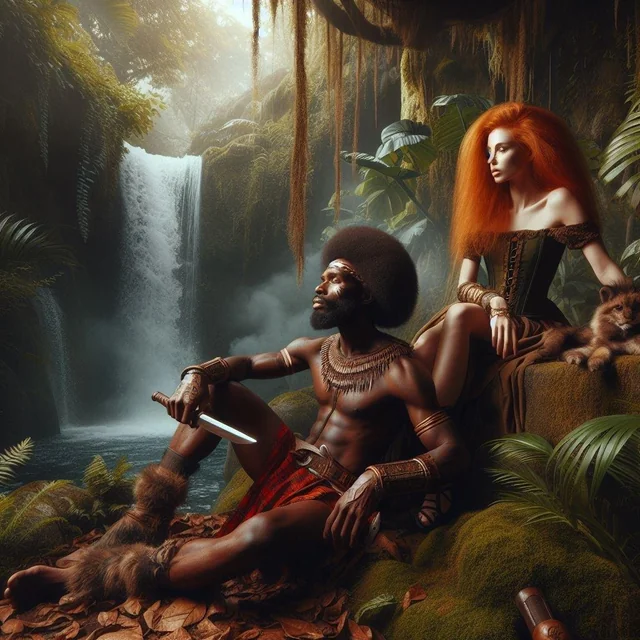Black CLi Fi Meets Eco-Fiction: Literary Genres Combine Afro-Futurist Culture With Climate Science
- blackcoralinc2021

- May 10, 2024
- 3 min read

Cli Fi brings the abstract data closer to home by focusing on the people and stories in these inclusive futures. Readers gain detailed and textured accounts of a climate-changed future! This makes facing the reality of climate change easier.
Climate fiction, or cli-fi for short, has emerged as an increasingly popular genre that puts environmental issues front and center. Although often considered a subgenre within science fiction, it has long since moved beyond that realm as the impacts of a warming world, once thought far off, have become commonplace. With the boundlessness that fiction offers, writers and artists can use it as a vehicle to imagine a better future and the path we might take to get there. Or, they can model the kind of resilience and adaptation humanity will need in coming decades.
Nobody knows how much of the present warming trend might be a natural phenomenon. Nobody knows how much of the present warming trend might be man-made. Nobody knows how much warming will occur in the next century. The computer models vary by 400 percent, de facto proof that nobody knows. (Michael Crichton)
"Broadly speaking, Afrofuturism is a literary genre, aesthetic, and musical and cultural movement that celebrates Black traditions and culture. It was the first “-futurism” rooted in a racial and cultural identity, and it has since encouraged other communities to envision their own futures.
The term, however, has troubled origins. White author and critic Mark Dery coined it in his 1994 essay “Black to the Future,” in which he asked, “Can a community whose past has been deliberately rubbed out, and whose energies have subsequently been consumed by the search for legible traces of its history, imagine possible futures?”
Some scholars, like poet and professor Hope Wabuke, argue that Afrofuturism is bound by the white gaze and limited to views of the African American experience that began in 1619. But despite criticism, with the talents of Authors Like Octavia Butler, Nikki Giovanni, and Akwaeke Emezi all New York Times bestsellers, Afrofuturism has moved into the mainstream, and many consider it an empowering manifestation of unapologetic Blackness. (Gist.org)
Afrofuturist climate fiction novels can contribute to the decolonization of climate politics through radically different socio-climatic storytellers The Afrocentric eco focused creators of fanciful stories were visionaries stressing the impracticality of harboring a dismissal perspective of eco science fiction based on incapability of realization to those that dominated mainstream imaginations of climate futures. The Afrofuturist climate fiction novels of authors such as Nnedi Okorafor, Lauren Beukes and Doris Lessing imagined different spaces, temporalities, ecologies and politics. Reading them as climate theory, they offer the possibility of a more decolonized climate politics, in which issues of land and climate justice, loss and damage, extractive political economies and the racialized and gendered violence of capitalism are central and their reality exposed.
The term eco-fiction did not become popular until the 1960s when various movements created the platform for an explosion of environmental and nature literature, mankind's accountability to the environment is part of the text's ethical orientation. which also inspired ecocriticism. Cli-Fi tends to embrace hope over dystopian perspectives. its protagonists seek outcomes that are hopeful uplifting, and leave the reader with a sense of inspiration, aspiration, and optimism.
Utopian perspectives are in a battle with a defeatist dystopian perspective common in Sci Fi Climate fiction with its focus on climate change themes, setting, and plot elements, embraces science fiction, or fantasy content and themes that don't end in apocalypse or dystopia, but rather envision worlds in which humanity, technology, and nature strive to coexist in harmony rather than in conflict; and/or depict future communities that are actively struggling to build a just and equitable utopian world, even if they haven't yet fully reached that goal.
Climate Fiction works with a focus in particular on solutions to climate change and the effects of embracing a selfish perspective of climate change on the planet, ecosystems, and communities. Cli- Fi also directs that focus to provide solutions to global social problems and envisions futures with new, inclusive, democratic, participatory, and collaborative political and economic systems.





Comments